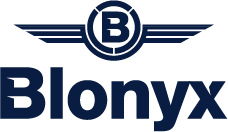If you’ve been training for a while you’ve likely heard that you should consume both protein and carbs within 30 to 60 minutes after a workout or you’ll miss the short “anabolic window.” While this advice comes from real physiology—muscles are more sensitive to nutrients after exercise— the window doesn’t slam shut after an hour.
For most athletes, hitting your total daily protein and energy targets matters far more than the exact minute you get them.
What is the “Anabolic Window” Anyways?
After strength training, your body enters a temporary anabolic state—muscle protein synthesis (MPS) increases and your muscles become more responsive to amino acids.
The idea of a 30-minute “anabolic window” in which to take in protein and carbs likely came about because protein provides amino acids that get built into new muscle proteins, while carbs raise insulin, which helps reduce muscle protein breakdown and, when needed, speeds glycogen replenishment.
While post-workout nutrition is important, studies show the body stays primed for hours, not minutes. What matters most is total daily protein intake and using carbs strategically when glycogen recovery is the goal.
It’s also worth noting that some muscle protein breakdown is necessary. It clears out damaged proteins so stronger tissue can be built. The goal isn’t to avoid breakdown completely—it’s to make sure growth and repair exceed it.
What the Science Says
So, what does the research say? Studies on post-exercise protein and carbohydrate intake show that nutrient timing for muscle growth and recovery isn’t as simple as the old 30-minute rule.
-
Pre- vs post-workout timing isn’t critical. There’s no meaningful difference in muscle growth if protein is consumed before or right after training, as long as daily intake is adequate.
-
Daily protein intake and distribution drive progress. Hitting ~1.4–2.0 g/kg/day, spread across meals/snacks, supports adaptation.
-
Bigger protein doses extend the anabolic response. Large servings (e.g. 100g vs. 25g) produce a longer muscle-building effect without impairing normal breakdown.
-
Carbs matter mostly for rapid recovery. Eating carbs right after training accelerates early glycogen refilling, but delaying ~2h usually doesn’t affect stores 8–24h later if intake is sufficient.
-
Fasted training shifts priorities. If you trained fasted or several hours after your last meal, protein afterward is more important. If you ate recently, timing is less critical.
How Long Is the Anabolic Window?
The short answer: hours, not minutes. Exercise increases MPS and nutrient sensitivity for roughly 24h, with a gradual taper. So, don’t panic if you can’t eat right away. Your next meal—and your overall daily intake is what matter.
The International Society of Sports Nutrition recommends ~1.4–2.0 g protein per kg of bodyweight per day, spread every 3–4 hours.
When Timing Actually Matters
Timing matters when the next session is soon, when you trained fasted, when the session was very long or intense, or when you’re trying to force a calorie surplus for weight gain. Below are the practical scenarios and what to do.
-
Fasted training or long gaps since eating: Aim for 20–40g protein soon after, plus carbs if glycogen was depleted.
-
Multiple same-day sessions (<8–24h): Get carbs in quickly (~1g/kg within 0–4h) plus 20–40g protein to speed glycogen restoration.
-
Long or high-volume sessions (≥60–90 min): Carbs and protein soon after will improve recovery quality and next-day readiness.
-
Trying to gain weight: Post-workout eating helps increase calorie intake and makes it easier to hit a surplus.
-
If you just like it: A post-workout shake can be a convenient, enjoyable way to refuel.
For recreational athletes training once per day and already meeting daily protein targets, you’re probably fine having your next full meal within 2–4 hours after training—obsessing over minutes adds little benefit.
That said, hydration, electrolytes, and total calories also drive recovery and adaptation. Blonyx Hydra+ makes this simple, providing electrolytes to rehydrate and kickstart recovery after training.
Key Takeaways
In short, having a post workout shake definitely isn’t going to hurt you, and could even help a little, but hitting your daily protein, carb, and hydration targets drives progress more than obsessing over timing.
-
The classic 30-minute “anabolic window” is overstated—muscles stay responsive for hours.
-
Daily protein and distribution matter more than exact timing. Aim for 1.4–2.0 g/kg/day, 20–40g per meal every 3–4h.
-
Larger single doses can extend the anabolic response.
-
Carbs help most when rapid recovery is needed.
-
If a session is long or intense or you’re training again soon, aim for 20–40g of protein within 0–2h.
-
Don’t ignore fluids, electrolytes, and overall energy intake.
For busy athletes who often train early, travel, or miss meals, Blonyx Egg White Protein Isolate is a practical post-training option: high-quality protein, quick to mix, minimal ingredients, and easy to take on the go.
That’s all for this week! If you learned something new and are curious to know more, head over to the Blonyx Blog or my growing list of weekly research summaries where I help you further improve your athletic performance by keeping you up to date on the latest findings from the world of sports science.
– Train hard!
Looking for more ways to keep up with Blonyx?
Now, you can join the Blonyx Strava Club to track your progress, share training tips, and connect with athletes who share your athletic ambition.
You can also follow us on Instagram and Facebook for additional sports science information, announcements, exciting giveaways, and more!


